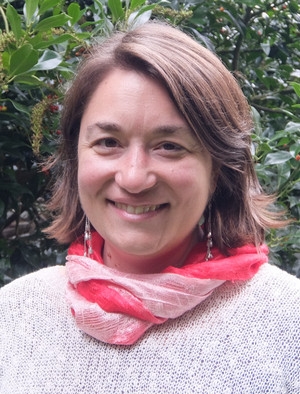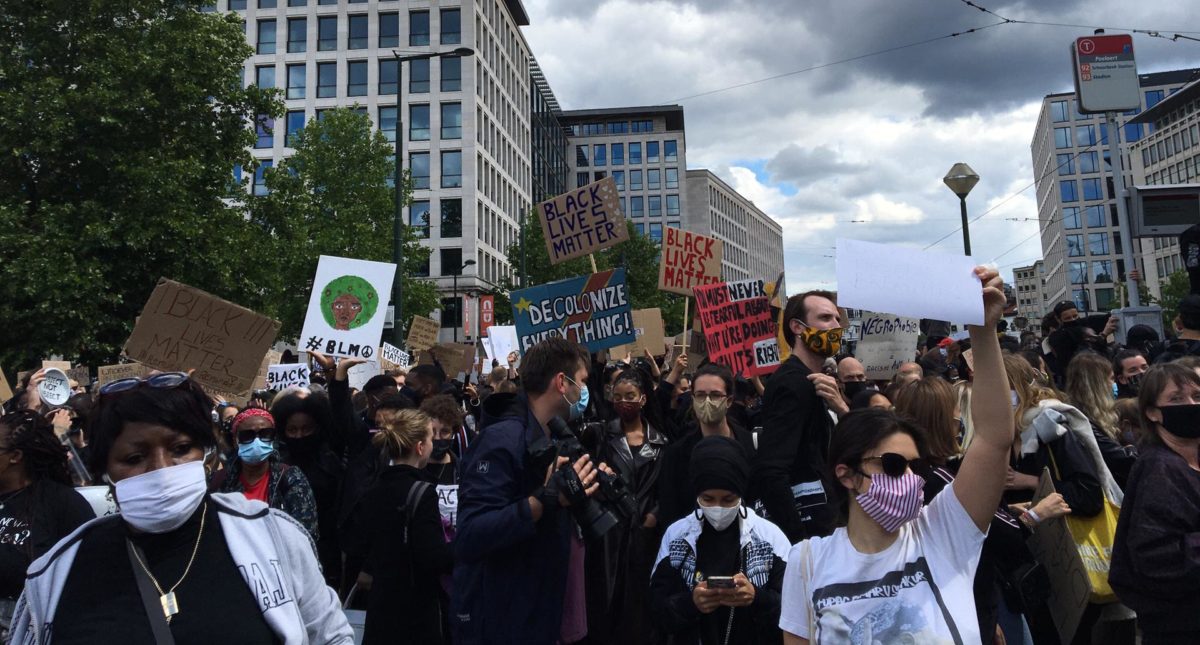A reflection by our Secretary-General Josianne Gauthier
Yesterday was the anti-racism protest in Brussels organized by Black Lives Matter. At least 10,000 people (a very high number for a demonstration in a small country like Belgium) showed up, with their masks on. Many of the activists were young adults, but there were also many older folks and people with children, of all origins, holding up their placards and chanting calls for justice and truth. All around the world these protests and marches have been drawing hundreds of thousands of people out of their homes for the past week, since the world witnessed the murder of an innocent African American man on social media, at the hands of the police. Many jumped to their feet, ready to fight, ready for action, ready for a revolution. Others, like me, felt crushed, disheartened, momentarily lost, and afflicted with a deep physical, spiritual and psychological sadness that was hard to shake.
Since February, we have been under the clasp of the global Pandemic COVID-19, and most of the planet has been in nearly total confinement. We watched this health crisis reverse the tables between North and South for a brief moment while the wealthiest nations and their powerful economies were brought to their knees. We finally began to collectively understand the relationship between our fast-pace consumerist way of life, our economic model based on resources’ extraction and the destruction of our planet. We began to understand that our planet was crying out and that our Mother Earth was ill, so we also became ill[1]. We began to talk of transformation and change and not returning to “normal” once the crisis had passed and spoke of “just recovery”. But we also began to see the hidden side of the Pandemic, how it unfairly reached into wealthy societies and hurt the poor in many different and brutal ways. Lower paid jobs were lost without security. Health risks were higher for immigrant and minority populations, and especially women among them, in wealthier countries because of the care work and essential service work they were carrying out. Already during the Pandemic we realized we had forgotten to turn over one stone: our colonial model.
As the virus reached the American continent we began to see the numbers. African Americans were being hit harder[2]. In Canada as in the United States this meant less access to proper healthcare, higher risk jobs that they could not let go of or work from home at, many working in the infected zones (hospitals, residences for the elderly)[3]. And the virus spread to South America and we saw the impact on the Indigenous populations of the Amazon. Some are speaking of a genocide as the Indigenous communities, the same that fight against our extractivist model, and defend the rivers and forests against corporate abuse, are being infected three times faster than other communities and getting little or no care[4].
How can we not see the relationship between our way of life, our way of treating each other, the violence of our consumption and our colonial heritage? This heritage is ever present in our political systems, our international trade agreements, in our education system, in the way our media communicate, in our global food chains and even in our police systems.
And after these months of exposing all the systemic failure of our way of life, the colonial model showed us its very core, that it is founded on the principle that some can take and use and throw away at the expense of others, their lives, their dignity, and their hopes. I’m understanding that the great sadness I felt and which slowed me down, was the tremendous sadness of the millions of cries of people across the planet all at once, pleading with those who have benefited from this to stop. Stop accepting that the world is as it is. Stop accepting the benefits of injustice. Refuse. Awaken. Listen. Stop talking. Stop taking. Stop. And then we can slowly begin to live again and transform this world, our relationships and create together. We are called to a great conversion as Pope Francis reminds us, and it begins with listening, unlearning and learning anew[5].
The mobilisations and protests around the world, as we have seen for the past year around the climate crisis, and now as we face our demons of racism and colonialism, give us energy and hope again that change is not only possible…”she is coming[6]”. But as the protesters remind us, there is no peace without justice, and there can be no justice without truth.

CIDSE Secretary General
References:
[1] Inspired by Pope’s Francis Encyclical Laudato Si’,oncare for our common home.
[2] Figures gathered by report: “The color of coronavirus: COVID-19 deaths by race and ethnicity in the U.S.” by APM Research Lab and reported by The Guardian
[3] Radio Canada reported on the issue
[4] See REPAM report on the spread of the pandemic in the Amazon
[5] Inspiration on this concept was taken by the Final document of the Synod on the Amazon, Chapter IV, par. 67 and 81.
[6] Arundhati Roy, War Talk: “Another world is not only possible, she is on her way. On a quiet day, I can hear her breathing.”

